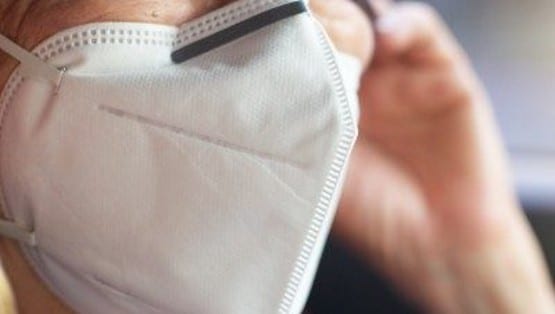
The good news about the rise in COVID-19 variants and hospitalizations in the United States is that Americans are better prepared than three years ago.
When the pandemic first was recorded in March 2020, medical professionals were unsure what to expect and vaccines were unavailable for the public.
Now, medical professionals have some knowledge and experience with the virus, vaccines are available for the public and medications are available to treat patients with high risk. Anyone who has been diagnosed with COVID-19 and/or vaccinated against the virus has also developed some immunity compared to three years ago.
All factors have created a less deadly disease, however, strategy is still necessary.
Dr. Allison Baroco, Infectious Disease Specialist at Augusta Health, said that the rise in COVID-19 and hospitalizations means that high-risk individuals, including anyone with a chronic illness or over age 60, should wear a mask when in crowds.
“That’s an extra layer of protection,” Baroco said.
Several variants have been detected in recent months in the U.S., which have created 12,000 hospitalizations.
The situation remains at low volume with a low hospitalization rate in the Valley, and only 121 cases in the last week. Baroco said that reported cases are probably also under-reported because not all patients seek medical treatment or take a test to find out if they are COVID-19 positive.
“We have seen a rise in COVID cases, according to the Department of Health,” Baroco said. Yet, only one or two hospitalizations all summer at any given time.
According to past models of the virus, Baroco said that a rise in cases may be anticipated.
“Even if it’s circulating [in the Valley], we’re not seeing the severity [seen in 2020],” Baroco said.
One of the new variants, BA.2.86 is a concern because it is not part of omicron and has already had multiple mutations. At this time, she said it is too early for medical professionals to predict the severity of outbreak.
Multiple variants are typical of any disease, according to Baroco.
“The reality with viruses is they mutate a lot,” she said.
For example, a new influenza vaccine is necessary every year to further protect against the latest mutation of the flu. Technology allows for better detection. The number of variants of HIV is why an HIV vaccine is impossible.
The world has yet to acquire immunity against COVID-19, but immunity may lessen the number of mutations. Baroco said a new COVID-19 vaccine is expected in September or October.
“I think there’s more for us to learn and follow,” she said of the coming months.
Baroco advises anyone who is ill to stay home and test for COVID-19. If you do not test and must go out, wear a mask.
Last year, RSV peaked in late October in the Valley and the flu peaked around Thanksgiving. Seasonal flu vaccines are available.
The season for respiratory illnesses has arrived again.










